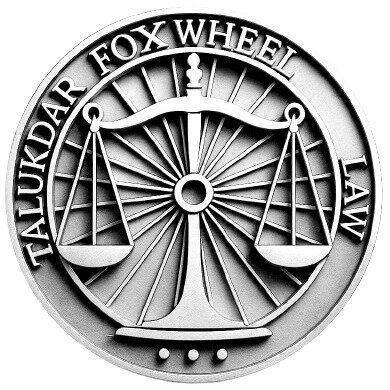Best Child Custody Lawyers in Guwahati
Share your needs with us, get contacted by law firms.
Free. Takes 2 min.
Free Guide to Hiring a Family Lawyer
List of the best lawyers in Guwahati, India
About Child Custody Law in Guwahati, India
Child custody refers to the legal relationship between a child and their parent or guardian when parents are separating or divorcing. In Guwahati, as in the rest of India, child custody is governed by various personal laws based on religion, as well as overarching secular laws and statutes. The primary concern of the court is the welfare and best interests of the child. The objective is to ensure that the child receives proper care, love, education, and upbringing, regardless of which parent the child lives with.
Why You May Need a Lawyer
Navigating child custody matters can be emotionally challenging and legally complex. You may require a lawyer for situations such as:
- Filing for custody during or after divorce or separation
- Seeking visitation rights or modification of existing custody arrangements
- Addressing disputes regarding child upbringing, relocation, or schooling
- Alleging abuse, neglect, or concerns for the child's welfare
- Understanding your legal rights and obligations as a parent or guardian
- Representing your interests during court hearings or mediation
Local Laws Overview
Child custody laws in Guwahati are influenced by national legal codes and local practices. The key legislations affecting child custody include:
- The Hindu Minority and Guardianship Act, 1956 and Hindu Marriage Act, 1955: Applied to Hindus, Buddhists, Jains, and Sikhs. Preference is often given to the mother for children under five years of age, but the child’s best interest is paramount.
- The Guardians and Wards Act, 1890: A secular law applicable to all religions for matters not specifically addressed by personal laws. The court decides based on the child’s welfare, age, sex, and the parent’s ability to care.
- The Muslim Personal Law (Shariat) Application Act, 1937: Under Muslim law, the mother (mother's right of hizanat) is usually preferred for younger children, with custody often vested to the father as the child grows older.
- Other laws such as the Protection of Women from Domestic Violence Act, 2005 and Juvenile Justice (Care and Protection of Children) Act, 2015 can also apply, especially in cases alleging abuse or neglect.
Frequently Asked Questions
What is the primary consideration in child custody cases?
The welfare and best interests of the child are the top priorities in all custody decisions, regardless of parental preference.
Who can file for custody of a child in Guwahati?
Either parent or a legal guardian can file for custody. In exceptional cases, close relatives or state authorities may also approach the court if the child’s welfare is at risk.
Can grandparents or other relatives seek custody?
Yes, in certain situations where both parents are unfit, deceased, or absent, grandparents or other relatives may apply for custody by demonstrating the best interests of the child.
Is joint custody recognized in Guwahati?
Yes, courts may grant joint custody when it serves the child’s best interests, allowing both parents time and decision-making authority over the child.
How does religion affect child custody law?
Religious personal laws (Hindu, Muslim, Christian, etc.) can affect custody decisions, but the welfare of the child remains paramount over religious provisions.
Can a child choose which parent to live with?
For older children, particularly teenagers, the court may consider the child’s preference, but the final decision rests with the judge.
What if one parent lives outside Guwahati or India?
Courts consider factors such as the stability, environment, and practicality of visitation or relocation before deciding on custody if one parent resides elsewhere.
How long does the custody process take?
The duration can vary significantly depending on the complexity of the matter, from a few months in uncontested cases to longer periods if disputes arise.
Can existing custody orders be changed?
Yes, custody orders can be modified if there is a significant change in circumstances or if it is in the best interest of the child.
Do unmarried parents have the same rights as married parents?
Unmarried parents can seek custody, and the court still prioritizes the child’s welfare. Parental rights and responsibilities are determined case-by-case.
Additional Resources
If you need more information or assistance, consider contacting the following:
- District Legal Services Authority (DLSA), Guwahati: Offers free legal aid and counseling.
- Assam State Commission for Protection of Child Rights: Works for children’s rights and welfare.
- The Gauhati High Court Legal Services Committee: Provides guidance and services on family and child custody matters.
- Women’s Helpline and Childline India (1098): Nationwide helplines for women and children in distress.
- Local Family Courts and District Courts: Handle all family matters, including custody-related proceedings.
Next Steps
If you are facing a child custody issue in Guwahati, consider taking the following steps:
- Document all relevant information and events related to your child’s well-being.
- Consult with a qualified family law or child custody lawyer who practices in Guwahati.
- If you are eligible, approach the District Legal Services Authority for free legal aid.
- Attend all court hearings and mediation sessions punctually and cooperatively.
- Remain focused on the best interests of the child throughout the process.
- Keep all communication with the other parent respectful and child-focused.
Lawzana helps you find the best lawyers and law firms in Guwahati through a curated and pre-screened list of qualified legal professionals. Our platform offers rankings and detailed profiles of attorneys and law firms, allowing you to compare based on practice areas, including Child Custody, experience, and client feedback.
Each profile includes a description of the firm's areas of practice, client reviews, team members and partners, year of establishment, spoken languages, office locations, contact information, social media presence, and any published articles or resources. Most firms on our platform speak English and are experienced in both local and international legal matters.
Get a quote from top-rated law firms in Guwahati, India — quickly, securely, and without unnecessary hassle.
Disclaimer:
The information provided on this page is for general informational purposes only and does not constitute legal advice. While we strive to ensure the accuracy and relevance of the content, legal information may change over time, and interpretations of the law can vary. You should always consult with a qualified legal professional for advice specific to your situation.
We disclaim all liability for actions taken or not taken based on the content of this page. If you believe any information is incorrect or outdated, please contact us, and we will review and update it where appropriate.












